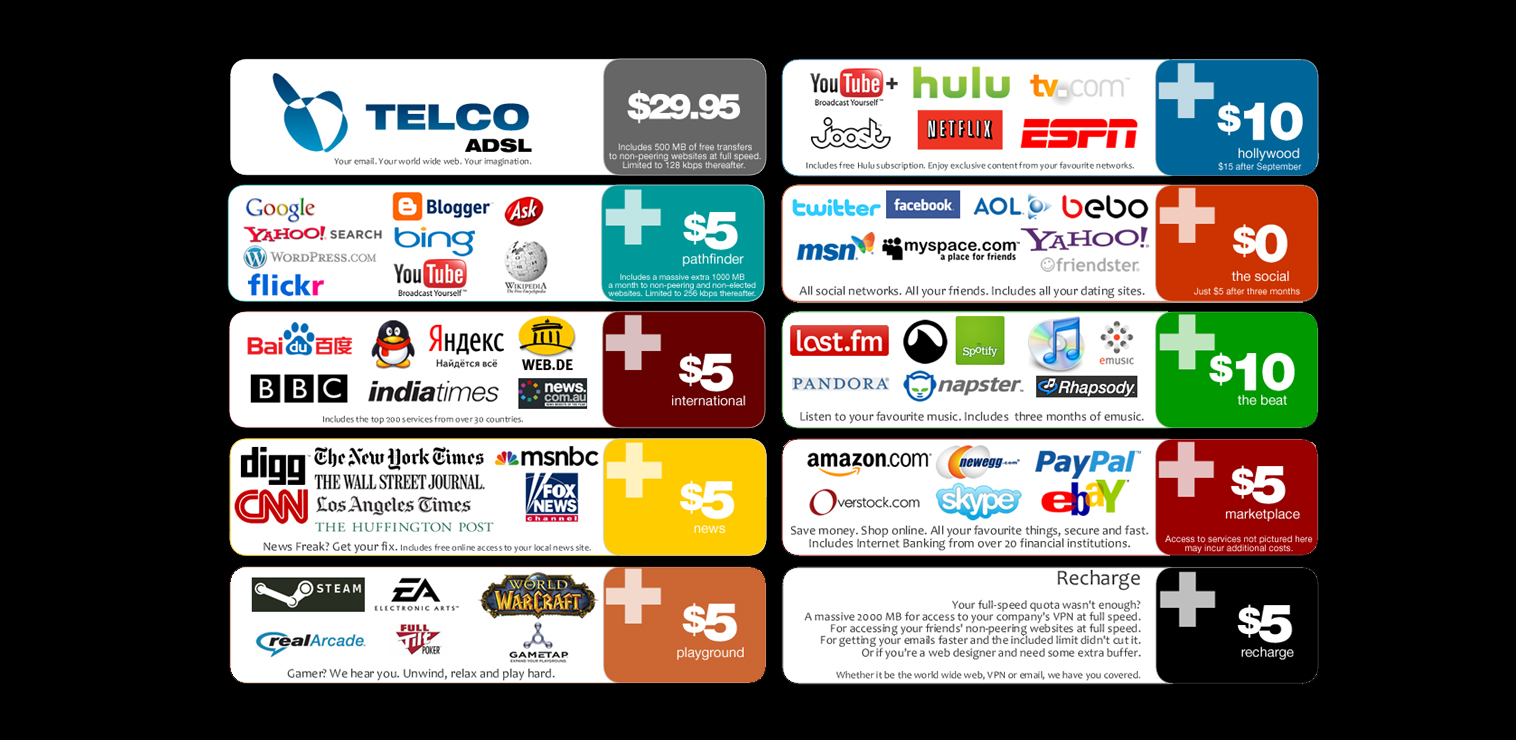- Joined
- Mar 8, 2013
- Messages
- 16,339
- Reaction score
- 13,844
- Gender
- Male
- Political Leaning
- Moderate
Why should anyone have to pay? The ISPs are already getting fees from the consumer. That's how they get paid. They shouldn't be able to say to the customer "Well, you're paying us $50-$100 a month, but you can only go to the places we say you can go".Maybe it was Netflix's turn to pay, or perhaps they were in a better position to pay.
If you truly care about a citizen's ability to use the Internet how they see fit, you should be against that.
:shrug:To do that, you have to have the money to pay for it, or take out bonds to pay for it.
That's their job. That's part of being an ISP. Comcast has 23+ million subscribers. At a roughly average price of $80 a month, that's a LOT of money per month. Part of the ISPs responsibility is making sure their network is strong enough to sustain demand. That's on them.
Sure. But that's not what's happening now. The federal government isn't walking in and offering Internet. They are merely saying that ISPs cannot pick winners and losers.You and I both know that as much as there are individuals and businesses that are abusing their power, the very same thing can also be said about governments. Given 1/2 a chance, the government will walk right in, take all the cards for itself.
Let's ignore the larger Obamacare discussion and focus on this. This is nothing like mandated single payer insurance. And that's been my point all along. This is more in line with the government requiring labels on all food you buy. They are literally telling the ISPs they can not withhold information.We can see it happening in slow motion with ObamaCare, for example. Now that all the health insurance providers have found out that the healthcare exchanges are unprofitable, they are all walking away from them, leaving the government statist / leftists to pitch what they wanted in the first place, which is government run single payer, and no private healthcare insurance. Too bad that it'll end up looking like the VA, and cost the tax payers 10 times more, as it's perceived as free and readily, easily, and frequently abused. Just have to look at the Medicare scams that are costing the taxpayer billions. It's the same high level pattern. The government is like the weeds that invade a pristine lawn, or a cancer that invades healthy tissue.
Yes, I see where you have statist tendencies. All I can do is urge you to resist them. :mrgreen:
That's not a "statist" tendency. That's the very job of a government. We saw what happened when businesses had carte blanche to write their own rules. It didn't work. So we have to balance how much we need government to protect citizens from big business. And as long as there is virtually no competition, we have little choice but to make sure the company providing the Internet to a given region does not abuse their power, in the pursuit of ever greater profits.
By the way, I really have enjoyed this discussion.

